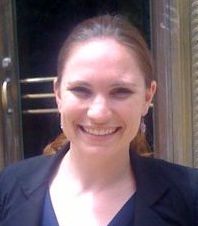by Lauren Burke, Esq.
Lauren Burke is the co-founder of Atlas: DIY, developing immigrant youth, and the immigration attorney at the New York Asian Women’s Center. Lauren is a former Skadden Fellow at The Door, where she worked with Chinese child survivors of human trafficking. Since graduating from NYU Law in 2009, she has worked with over thirty law students in a direct and clinical capacity and loves sharing the advice she learned from tripping (literally!) in dozens of legal interviews.
Burke is the co-founder of Atlas: DIY, developing immigrant youth, and the immigration attorney at the New York Asian Women’s Center. Lauren is a former Skadden Fellow at The Door, where she worked with Chinese child survivors of human trafficking. Since graduating from NYU Law in 2009, she has worked with over thirty law students in a direct and clinical capacity and loves sharing the advice she learned from tripping (literally!) in dozens of legal interviews.
1. You Didn’t Do Your Homework
If you can pass civil procedure you can certainly take five minutes to look at an organization’s website and at least learn their mission statement! No excuses, just do it. I’ll quiz you on it, I will!
2. You Dismiss My Training
Organizations are not particularly interested in training you for an entire summer if the biggest impact you think you will have down the road is “taking on a few pro bono cases” or that you’d like an internship “to get class credit.” We want to see how you are dedicated to the field, or, at least, want to apply our training and work to help others in need.
3. You Take Me Too Seriously
It’s actually ok to relax in the interview and let your personality show. We’ll be working together late in the night working on an appellate brief and THEN get a call that a client was arrested…again! So we’re looking for people we can click with on a personal and professional level.
4. …Or You Don’t Take Me Seriously Enough!
Yes, I’m 28 and a female but that doesn’t mean working with me isn’t tough or that I’ll beg for any law student to come crawling my way. You may be older and in many respects wiser but don’t forget who is interviewing whom.
5. You Fabricate Your Language Skills
Conversational means you know how to say more than “what is your name” and “how old are you.” Proficient articulates that you can get the job done, literally, in the language you use. Don’t think you’ll get off without being tested, I often bring others who speak a language I need to test prospective interns’ chops.
6. You Patronize the Clients
I’d rather not hear about how all you want to do is “help the poor people” and how having a law degree (or half of one) makes you superman. We love what we do but we also recognize why we are here and it’s largely because we love the population. You should want to learn as much, if not more, from the clients as you are able to provide and to recognize that in the interview.
7. You Take a One-size Fits All Approach to Public Interest
I love an intern with variety but housing foreclosure for the elderly applies a different skill set than youth in foster care. Do issues and talents overlap? Absolutely! But I want you to be able to speak about and articulate why this particular internship speaks to you.
8. You Didn’t Ask Me Any Questions
If a law student doesn’t have questions at the end of an interview, I worry about their intellectual curiosity and genuine devotion to the position. Students should come to every interview armed with at least one follow up, “where do you find your client base” works in most situations!
9. You Confused the Name of My NGO
This maybe goes with number one but, again, do your homework! Sanctuary for Families is different than Safe Horizons, and Advocates for Children is not the Administration for Children’s Services. Print out a page of each NGO you are interviewing with and highlight key items, review this sheet before each interview and you should be good to go!
10. You Didn’t Show Up
Interviews at these fairs are lightning fast and you’ve got to make an impression (and not the kind where the interviewer is left sitting at a table alone staring into space.) Even if you have a job offer that you would like to take, contact the employer in advance of your interview so that they have a chance to talk to someone else. You never know who you’ll want to interview with in the future and trust us, we talk!


 Cayuga, Cortland, Delaware, Herkimer, Jefferson, Lewis, Madison, Oneida, Onondaga, Oswego and Otsego. In addition, LASMNY operates a statewide Farmworker Law Project from its New Paltz office.
Cayuga, Cortland, Delaware, Herkimer, Jefferson, Lewis, Madison, Oneida, Onondaga, Oswego and Otsego. In addition, LASMNY operates a statewide Farmworker Law Project from its New Paltz office.
 Our professional staff, along with thousands of volunteer lawyers, law students and legal professionals, assists over 30,000 low-income children, youth, adults, and families, as well as eligible community organizations each year.
Our professional staff, along with thousands of volunteer lawyers, law students and legal professionals, assists over 30,000 low-income children, youth, adults, and families, as well as eligible community organizations each year.